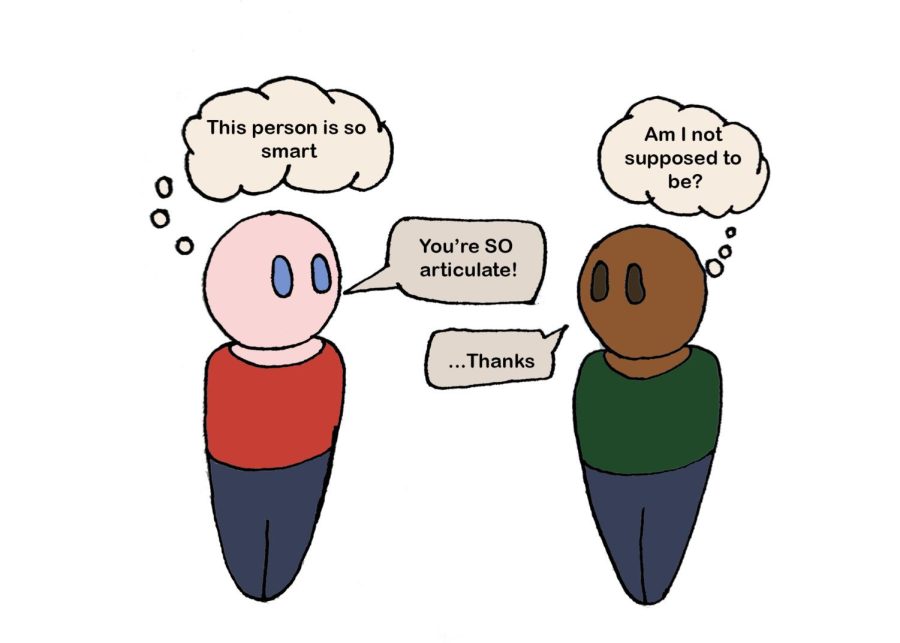Microaggressions negatively affect students of color, but micro affirmations can help
April 18, 2023
Black. A political ‘statement’ and skin color based-category for specific populations with usually, a mid to dark-brown complexion. You see it in your best friends, co-workers, neighbors, peers and companions.
You also see it in students from around the world. Microaggressions and racial disparities in the treatment of students are often seen as one of the biggest challenges for students of color in the system of education.
Racial disparities can lead to unfair treatment that can happen in schools. Things like unbalanced demographics in AP classes, suspension and expulsion rates and simply just social interactions are examples of these racial disparities.
Microaggressions are claims, statements or subtle actions that subliminally or unintentionally discriminate against members of a certain marginalized group.
For example, saying “you’re so articulate,” insinuates that it’s not normal for someone of that ethnic group to have intellect.
“I have experienced microaggressions in the classroom, and it has impacted me by making my learning environment uncomfortable,” said junior Imani Hobson.
Dealing with these situations can cause strong emotions in students that shouldn’t have to be felt especially in a school setting.
According to the article, Microaggressions and Micro Interventions, written by authors Heather H. Miller and Kayala Miskimon, on the Florida State University website, studies show that people who experience racial experiences like microaggression have “elevated levels of anger, stress and anxiety.”
The emotions of anger, stress and anxiety can be challenging to deal with while trying to learn.
“I have tried to address the situation by saying what is making me uncomfortable, but that doesn’t always make a difference,” Hobson continued, “and the option to remove yourself from the environment during class isn’t always there.”
Though most of the time when microaggressions are committed against students of color, they don’t ask for help because they believe that people will see it as a minuscule complaint. Or the fact that the comment wasn’t blatantly racist, they wouldn’t be able to prove anything.
According to the article database, To Include is To Excel: Racial Microaggressions in the classroom, led by Ryan Sherpard, research showed in 2017 that “86 percent reported being negatively impacted to some degree by microaggressions in the classroom.” As for solutions, 48 percent claimed to “ignore the microaggression or stay silent
Especially coming from educators, microaggressions aren’t always verbal. Things like not helping or assisting students or continuously saying a name wrong without exerting an effort to learn the correct pronunciation.
“When you see educators that have a track record of not holding students of color to high standards academically with quality work, meeting deadlines… and constantly allowing the ‘challenging’ students of color to escape the classroom and roam the hallways,” said African American Studies teacher Richard Rashad, “they are essentially telling that student they don’t care about them enough to spend the energy it takes to help them get in the right direction.”
Educators and students who haven’t experienced microaggressions or who are non-sensitive about cultural indifference should become more educated to become more mindful of others.
Micro-affirmations, small comments and factors that make a student feel accomplished for their work as a person, not their work as a person of color, would be appreciated by the students of color at Loy Norrix.
Actions speak louder than words. Asking for students’ opinions, showing genuine interest in what they have to say and giving credit where credit is due are ways to affirm POC. Micro-affirmations are also important and don’t always have to be verbal. These affirmations could be gestures like a smile or head nod, just to give that student reassurance.
“These interactions all come with teachable moments for both educators and students,” said Rashad.
“These things have to be discussed with the highest degree of professionalism, grace and compassion for another.”











